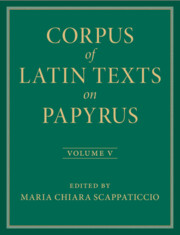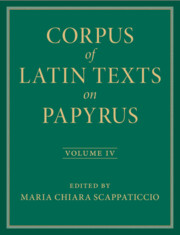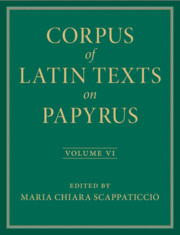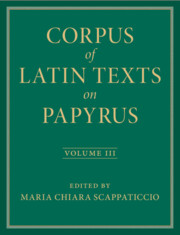Corpus of Latin Texts on Papyrus
The Corpus of Latin Texts on Papyrus (CLTP) is a comprehensive, up-to-date, and unique reference tool in six volumes, gathering nearly 1,500 Latin texts on papyrus. Editions are provided with both a palaeographic and a critical apparatus, English translations, and detailed introductions. The texts in CLTP cover a wide chronological range and many different types and genres. They include both literary and documentary texts, dating from the first century BC to the Middle Ages. They provide new knowledge about the circulation of Latin, offering unique insights into textual transmission and indeed into Latin literature itself, but also into topics such as ancient education and multilingualism, economics, society, culture, and multiculturalism in the ancient Mediterranean world. The result is a lasting and crucial reference work for all those interested in the history of Latin and of the Roman world.
- A unique reference-tool, gathering and presenting full new editions of nearly 1500 Latin texts on papyrus
- Makes the papyri accessible to a much wider audience of classicists and ancient historians
- Editions include palaeographic and critical apparatuses and translations as well as detailed introductions
Product details
July 2025Hardback
9781009351034
1000 pages
280 × 216 mm
Not yet published - available from July 2025
Table of Contents
- Part V. From V to V–VI AD:
- 1. Literary texts
- 2. Documentary texts.






